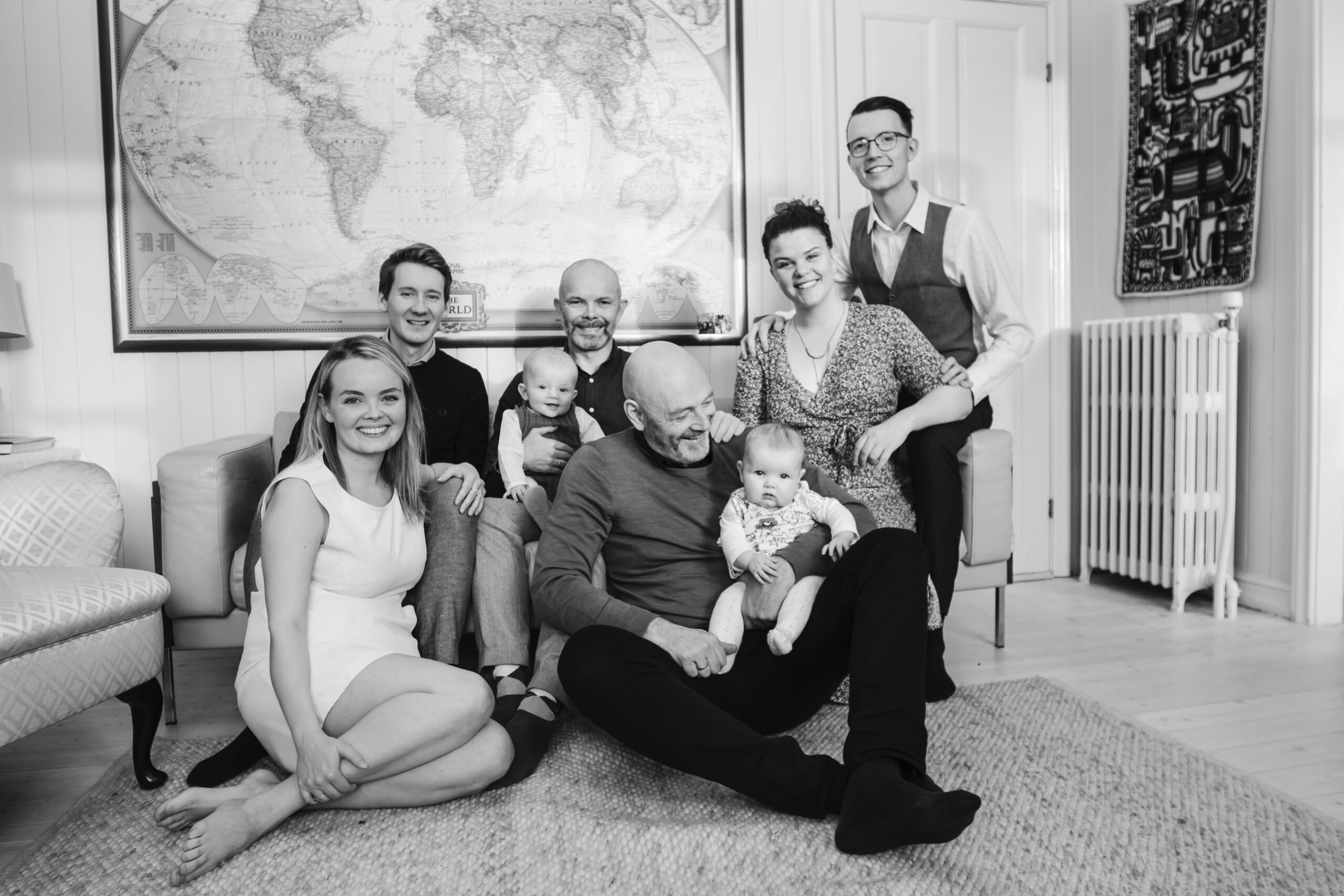Meet Baldur Þórhallsson, the man who could become Iceland’s First Openly Gay President.
The President of Iceland holds a unique position in the country’s political landscape, embodying not only the ceremonial aspects of the office but also wielding significant constitutional power. In a nation known for its progressive values and commitment to human rights, the potential election of the first openly gay president would mark a historic milestone.
Such an achievement would signal not just personal triumph but also a testament to Iceland’s journey towards inclusivity and equality. Against this backdrop, GayIceland was lucky enough to sit down with Baldur Þórhallsson who is campaigning to be the next President of Iceland. We chatted with Baldur and his husband Felix Bergsson to shed light on their personal journey, aspirations for the presidency and the broader implications of this candidacy.
GayIceland: Can you tell us a bit about yourself and your upbringing?
Baldur: “I’m a country boy, I’m from the countryside. I grew up in the south of Iceland on a farm. I went to high school in the south and when I was 20 I moved to Reykjavík to study political science at the University of Iceland. I was also a bit involved in journalism, both at the University and in my local community in the south. I later did a Master’s degree and a PhD at the University of Essex in England.”
GayIceland: What was your PhD in?
Baldur: “It was on the power potential of small states in the European Union.”
GayIceland: And Felix, can you give us a bit of a summary of your upbringing?
Felix: “Yes. I was born in Reykjavík but for the first few years of my life I was raised in Blönduós in the North of Iceland. My father was working there as a headmaster and my mother was a nurse at the hospital. In my childhood, myself, my parents and my three siblings moved to Reykjavík and that’s when I started to get interested in theatre. I got my first role in the National Theatre when I was 11 years old and pretty much since then, showbiz was what I had my sights set on. In the 80s I ended up becoming a pop star, then I studied drama in Scotland and then later in London, after I had met Baldur. I’ve basically worked in the entertainment industry in some capacity constantly since about 1986.”
I remember that when I came out, one of the first things people told me was that by coming out I had instantly sacrificed any chance at a political career.
GayIceland: Most Icelanders are aware of the incredible story of how the two of you got together but for the uninformed, can you tell us about how the two of you met and became the couple you are today?
Baldur: “Felix and I come from very different backgrounds. So while he was involved in all this really interesting art stuff as a child and teenager; I was working in a factory making horseshoes.”
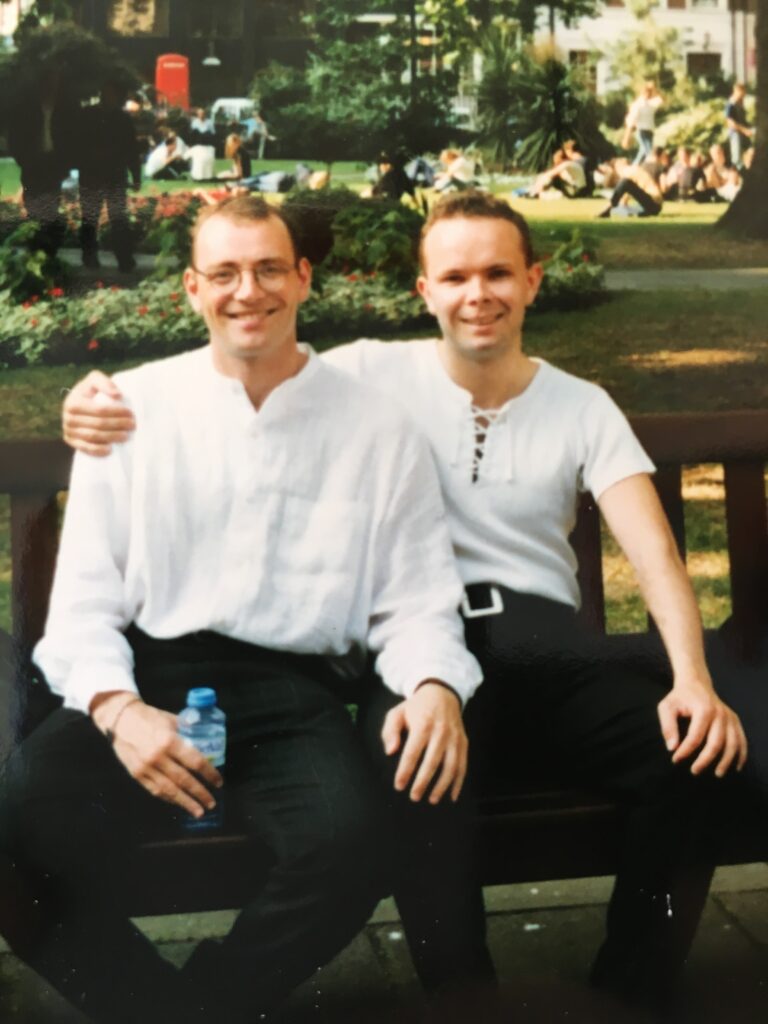
GayIceland: Really?
Baldur: “Yes. When I was 12, I was working 10 hours a day during the summer months. A year before that I was working for the department of transport laying asphalt. My grandfather was a sheep farmer and when I was 13, he got sick and couldn’t take care of the sheep anymore so I took over his sheep farm, with 100 head of sheep till I was 16.”
For those that don’t live in Iceland, you can imagine that farming and the entertainment industry are about as different as they are anywhere else in the world.
Felix: “So yes, we come from very different backgrounds. We actually met in the old headquarters of Samtökin 78 (Iceland’s national LGBTQAI+ organisation which was established in 1978). We met there in the library. It was always open on Monday and Thursday nights. I remember I came there on a Monday night and there was this gorgeous man sitting in the library reading.
I sat beside him at the same table in the library, we both had books, mine was probably upside down. We sat at the same table but we didn’t dare to speak to each other.
So a few weeks later the same thing happened. I came to Samtökin again. He was there, sitting in that same chair, reading a book. I sat at the same table as him and we didn’t dare to speak to each other.
The third time around, on the 15th of February, this is a month later; we did the same thing. I came, I sat at the same table, we didn’t dare to speak to each other. But, he overheard me say to someone else that I wanted to go to 22 (22 was the first queer bar in Iceland; the building that housed the original bar is now KIKI). So he heard this, and later that night I was at 22, he walked into that bar for the first time and saw me standing at the bar and walked straight over to me and we started talking.
So it took us a while to talk to each other but we haven’t stopped speaking since then. That was in 1996. So we have been together for 28 years.”
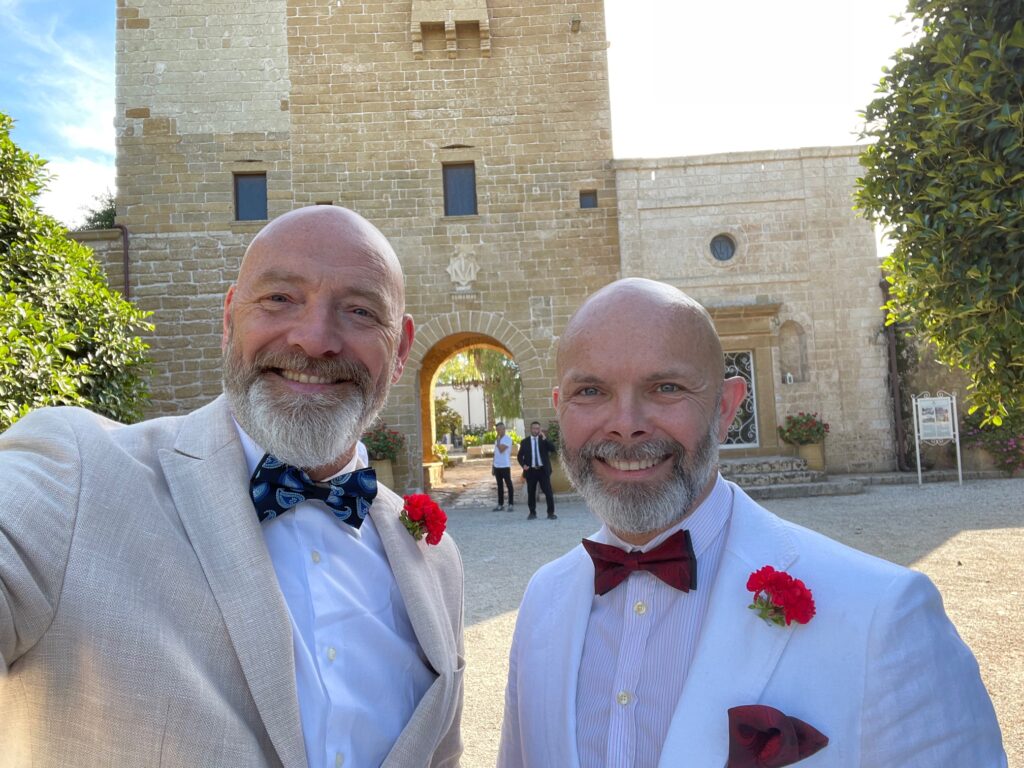
GayIceland: Are you two married now?
Baldur: “We had a civil partnership in 1999, because of course, at the time we didn’t have full marriage equality. We didn’t have full marriage equality in Iceland until 2010 but we changed our civil partnership over to a marriage after then so yes we are married now.”
GayIceland: And today you are not only husbands but you are also fathers and grandfathers.
Felix: “We may be from different backgrounds but we had actually had very similar experiences when we met. We had both been in relationships with a woman and both of us had a child from that previous relationship. We have a daughter and a son who are in their early 30s. Our daughter has two children and our son has one, so we have three grandchildren.”
We met there in the library. It was always open on Monday and Thursday nights. I remember I came there on a monday night and there was this gorgeous man sitting in the library reading.
GayIceland: Well that catches us up on an incredible meet-cute, so it’s now time for the million dollar question: Why have you decided to run for the president of Iceland?
Baldur: “At the beginning of this year, on the first of January, both of us started receiving messages from people encouraging both of us to run as candidates for the presidential elections. This wasn’t the first time. Eight years ago, we also received similar messages. People even did an opinion poll that came out very favourably at the time, but both of us weren’t really ready for it. We understood the encouragement and were honoured but we pretty much straight away decided that it wasn’t something we wanted to get into. So we just gave it away.
Eight years later, the same thing happened. As I said, from the beginning of the year we started receiving messages from all over the country. People once again did an opinion poll. Eventually people came over to our house and sat at this very table (he points to their dining room table from their house in Reykjavík), and they told us all the reasons they think I should run. This time we decided that we will listen to them. We will listen to what they have to say.
Then Felix looked at me strangely and said, ‘Why do you want to listen now?’ (he laughs). Like I never listen (he laughs again).”
It’s at this point you can see the inner workings of a couple who have been together so long they know each other inside out and are equally comfortable questioning each other.
Baldur: “I had to think about it myself. Why was I willing to listen this time around but not eight years ago? When I reflected upon it I realised that so many things had happened in that eight years. Trump was elected back in 2016; the Brexit vote happened in 2016. In the last eight years we have seen threats to democracy, hate speech, the rolling back of human rights. There have been serious threats towards the rights of women, queer people and many others. In a situation like this, I thought to myself, ‘Well you could lie down and cover yourself with a duvet, or you could stand firm and continue to fight for human rights and for democracy’.”
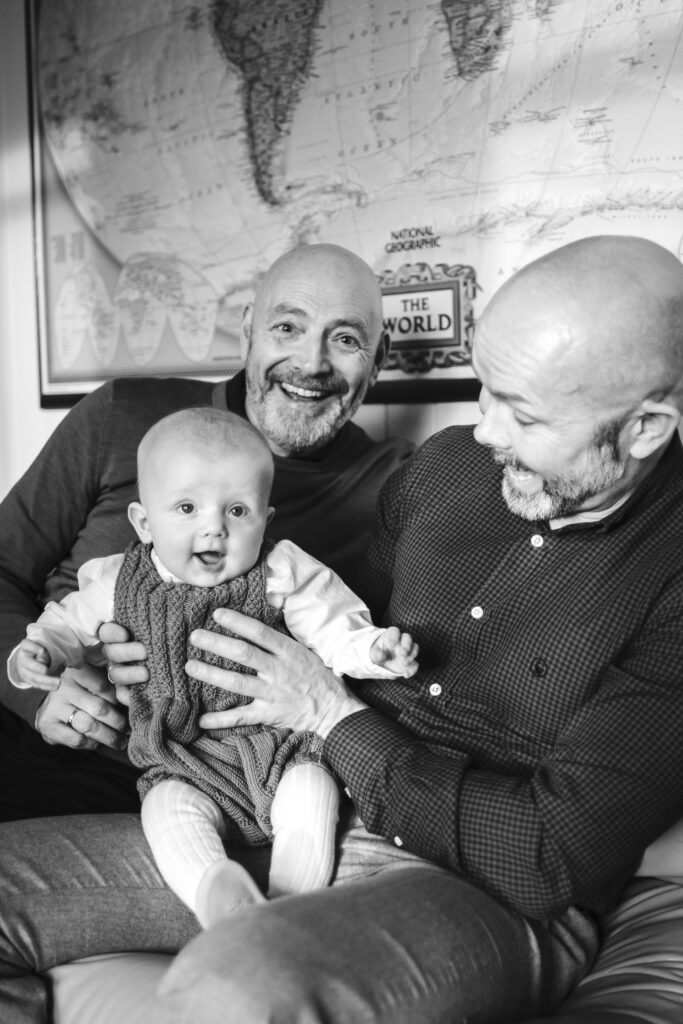
GayIceland: After making that decision, what kind of conversations followed? If one of you is running for president, the other is automatically going to have to come along for the ride. Felix, was that an easy decision for you to get on board with?
Felix: “We really had to have this conversation together and we also did with our kids and their families too. It was really great to get their opinions on this. It is important to stress though that we really didn’t want to do this unless we really felt there was a calling for it. There needed to be a movement behind it. We also felt that we really had to have something to offer. There has to be a reason for the candidacy.”
Baldur: “Yes, there has to be an agenda. We needed to be very clear about the reasons we want to do this and what we want to say. Secondly there has to be a movement behind us. We are doing this in the best interests of people, we don’t want to feel like we are in a bubble. The only reason we would agree to do this is if there is a real, genuine movement.”
Felix: “Exactly, we don’t really need the attention. We have enough attention in our lives. I mean, we have everything we need, we have wonderful lives; so the only reason to do something like this would be if there was a genuine need and the support of people who want this to happen.
Then momentum started building. It was a bit weird to feel like this wave of support started very quickly carrying us towards this decision.”
There have been serious threats towards the rights of women, queer people and many others. In a situation like this, I thought to myself, ‘Well you could lie down and cover yourself with a duvet, or you could stand firm and continue to fight for human rights and for democracy’.
Baldur: “Friends of ours established this support site through Facebook. There are already 23,000 members of it, which is a big deal in Iceland.
Baldur isn’t wrong. The total population of the entire country is only around 380,000 people, which means that this facebook group alone already has the support of around 6% of the entire country.
Baldur: “This additional support has really made us think long and hard about the reasons why we are doing this and what we want to say. So now we are very clear on our agenda.”
Felix: “Yes, and we want this presidential bid to be judged for the Agenda and what we actually want to do with the office, not just for who we are as people.”
GayIceland: And what are you hoping to bring to the table as the President of Iceland?
Baldur: “There are three main categories we would like to focus on. I’ll mention them briefly before going into more detail. The first one is the basic constitutional power of the President. The second is the agenda-setting role of the president. The third is how Iceland operates in regards to foreign policy.
Speaking about the constitutional power of the President; the President of Iceland actually has more power than people might realise. It’s not really spoken about a lot in the media, especially for international people. The President of Iceland is responsible for forming the government; or for making sure that there is a functioning government in the country. Of course this is done through the parliamentary process but the President is responsible for making sure there is a functioning government in the country and can play a decisive role in the event of a governmental crisis.
The President of Iceland is often portrayed as a more ceremonial role but in a crisis, this person has a great deal of responsibility. In 2016 when the Panama Papers scandal rocked the country, the Prime Minister at the time, Sigmundur Davíð Gunnlaugsson was implicated in the leaks causing the public to lose confidence in his ability to lead. Gunnlaugsson attempted to have the parliament dissolved so he could keep his position but this was denied by the then President, Ólafur Ragnar Grímsson which ultimately led to the Prime Minister’s resignation.
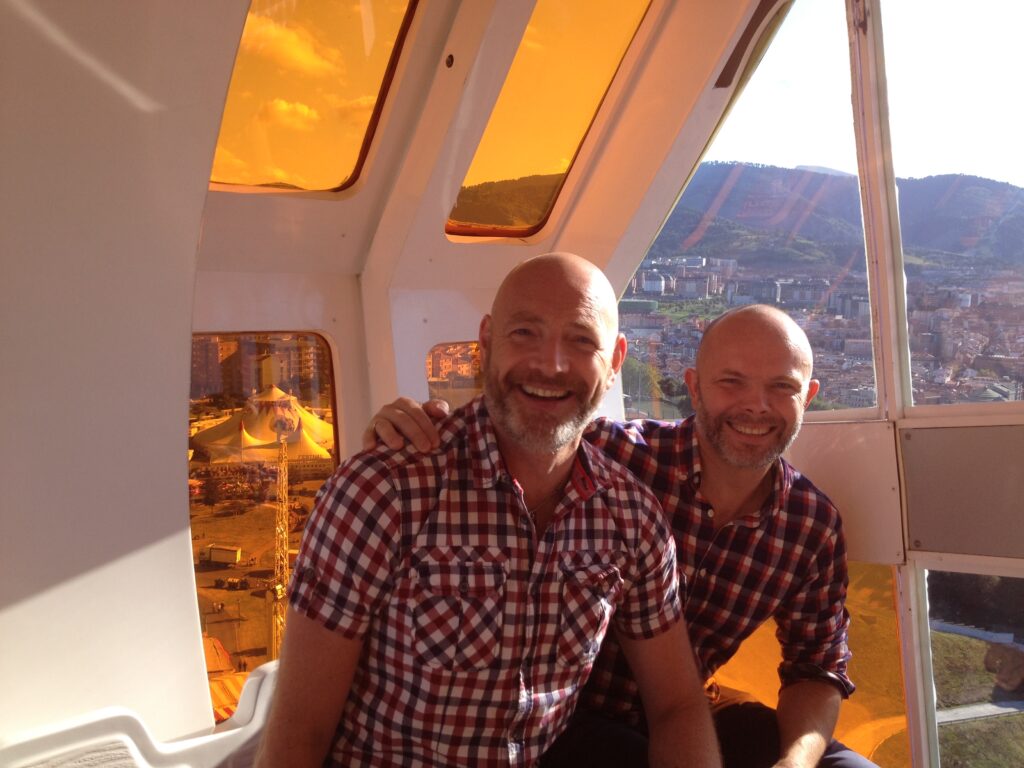
Baldur: “The president is a guardian of the social contract. What I mean by social contract is that because the President has to sign off on all laws from Parliament and if the President refuses to sign off on a law from Parliament, there will be a referendum on the law. The president in Iceland has only used this three times. It is an important role and the president has to always be on guard.
The president is the only elected figure and can never be codependent with the government. There has to be a distance.
On the note of agenda setting; Everyone in Iceland knows that the president has an agenda setting role. We would really like to use this as former presidents have done. We would like to prioritise three issues.
The three things we want to prioritise are; human rights for everyone; the well-being of children and youth, and that the president should look out for those who are left behind in Icelandic society.
We would like to take this a step further, not only talking about this in speeches and encouraging people to think about these three important issues, we would like to use, as I started, the President’s Residency to call on people to cooperate on these issues.
For some of those who are working on, let’s say, the well-being of young people, mental health or something, get them together at the President’s Residency to speak about, can we do something more together regarding mental health of young people.”
The three things we want to prioritise are; human rights for everyone; the well-being of children and youth, and that the president should look out those who are left behind in Icelandic society.
GayIceland: So you would like the President to be more actively involved in community consultation?
Baldur: “Of course! Ultimately decisions about these things are always in the hands of the government, but still there are so many people that are working on things in society and we would like to bring these people together to see if there are ways that we would like to work.
Lastly, the President can open doors internationally. The President should engage in opening doors both for the Icelandic government and the population at large internationally. The president should always take part in protecting the direct interests of Icelanders abroad and should also be involved in trying to make the world better. Of course the parliament and government decide Iceland’s foreign policy, but in general speaking there is a consensus for the Icelandic people and the President’s office could be used to a greater extent to guarantee Icelandic interests abroad.
For example, if the President of Iceland speaks at international conferences on climate change or on the law of the sea, people abroad tend to listen. I would also like to use my knowledge of small states. My main field of study has mainly been analysing how small states should work in the international system and have a say.
There are many things that small states can do but they have to use certain methods in order to defend their interests and participate in the conversation. First, of course, they have to prioritise issues; and then second I would say they have to be the best in a certain field at home. For example, if Iceland becomes the best when it comes to women’s rights and mental health of children and youth internationally, then the international community will listen to us when we are speaking on those issues.”
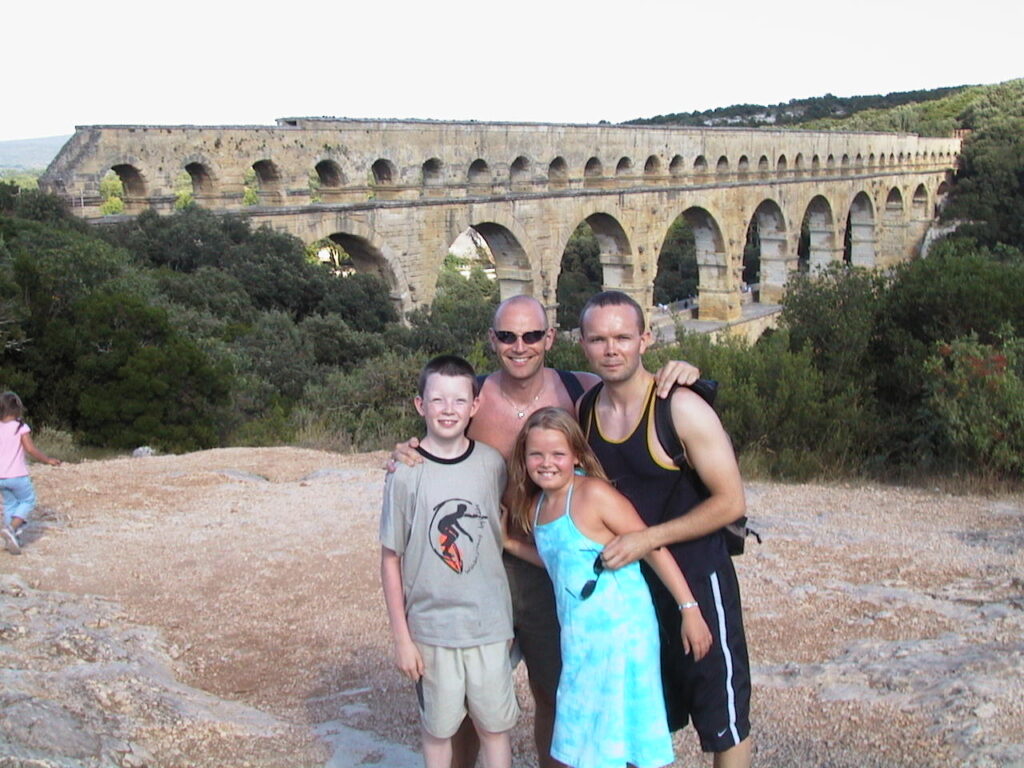
GayIceland: You mentioned earlier that one of the things that spurred this Presidential campaign into action was some of the negative issues LGBTQAI+ people have faced in Iceland in the past couple of months. There has been a noticeable increase in homophobia and transphobia, where do you think this has come from?
Baldur: “As we have seen in North America, in Europe, it’s part of an international trend. It’s really sad to see this development. At the same time, it’s important to remember that in reality it’s only a really tiny minority who take part in these hateful discussions so we need to do whatever we can to avoid them completely taking over any debate.
To give you an example, on the Facebook support page for the Presidential campaign, there are already 23,000 members. Probably less than 5 people have been homophobic on the page in the entire time it has been active, but somehow in the beginning, all the attention was on those 5 individuals out of the 23,000. It’s a bit odd to let them take over the entire conversation when you can count them on one hand. Of course we need to take any form of negative backlash seriously but we can’t just let the negative minority voices take over the debate completely. But this doesn’t just apply to the rights of queer people, it’s also applicable in all aspects of human rights.”
GayIceland: On the topic of human rights, if you think back to the world when you two met; what has it been like to see a lot of the positive changes between then and now?
Felix: “It’s been amazing I mean we were at the heart of it for a very long time. We were taking part in many of the battles, for example, for adoption, more recognition by the church, and so on. So, we really have been there, so we know how it has happened, and we know how much it takes to make these things happen. So it’s been very positive but there are still fights to be fought and we can’t get complacent because then everything backfires. So we just have to keep vigilant and keep at the forefront. But it’s been amazing to see how many things have changed in that time.
It’s not not such a long time since queer people didn’t really feel that they had a proper place in society. So therefore it’s important that we show ourselves, that we become role models, that we take our place in society just like anybody else. I mean it’s been 14 years since we could finally marry. I mean and that was 14 years into our relationship. So a lot has happened but a lot of it has also happened in a very short space of time.
It’s been amazing to see Reykjavík Pride become this huge festival and to feel the support from society at large because it wasn’t always like that.”
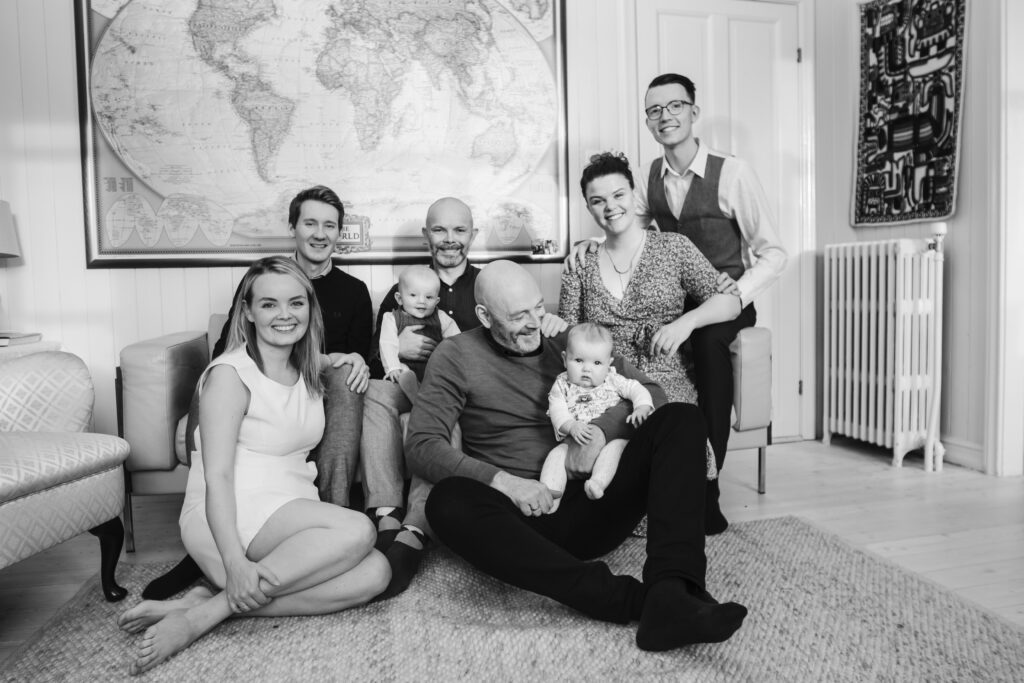
Baldur: “Like Felix is saying, we have witnessed a radical change in Icelandic society. If you look at opinion polls, the first opinion poll conducted in Iceland on the view of Icelanders towards gay people was conducted in 1981 and Iceland, according to this opinion poll, was the most homophobic society in the whole of Western Europe. Today, Iceland is the most liberal country towards queer people and queer rights in the whole of Europe. And it has taught us a lot. For example, it taught us how it’s possible to change things and how sometimes you may need to just do it step by step.
Sometimes you have to realise that you can’t make everything happen at the same time and a step by step approach is very important. If you are driving in the right direction, slowly but steadily, you will reach the end of the road eventually.
For me, after coming out as a gay person and after taking part in the struggle and seeing these achievements, I really do believe that it’s possible to move mountains when it comes to human rights for everyone.”
We were basically fighting for our existence at that time. We were fighting to be accepted so that we could live with our kids in one home. You know, it was very unusual for two dads to have their kids in one home back then, even though it was only half of the time, it was strange for many.
GayIceland: If you think back to the man you were 28 years ago, quietly reading a book in the library; would he have ever believed that he could potentially become the first openly gay President of Iceland?
Baldur: [Laughs] “No way! I had already been involved with youth politics at university and I remember that when I came out, one of the first things people told me was that by coming out I had instantly sacrificed any chance at a political career.”
Felix: “Three years earlier they said to me I couldn’t be an actor.”
Baldur: “Ten years before that people said gay people couldn’t become teachers.”
Felix: “Back then there was no way that this would be a possibility. We were basically fighting for our existence at that time. We were fighting to be accepted so that we could live with our kids in one home. You know, it was very unusual for two dads to have their kids in one home back then, even though it was only half of the time, it was strange for many. And for two dads to come into the school and demand that as the school talked about their children’s reality like they talked about everybody else’s. This was a big deal. There were so many struggles that we had to go through. There was so much we had to do because nobody was doing it for us.”
Baldur: “Even forming a queer student union.”
Baldur is referencing ‘Q,’ the Queer Student Union of the University of Iceland. It was founded in 1999 and still exists today.
Baldur: “When I came back from studying in the UK we decided that we wanted to create some kind of queer rights movement at the University, much like the ones that existed in almost every British university. So we took part in creating the queer movement at the University of Iceland. That was a very interesting job. The movement was very political and it was a huge achievement. There were so many things we fought for like adoption rights and recognition from the state.”
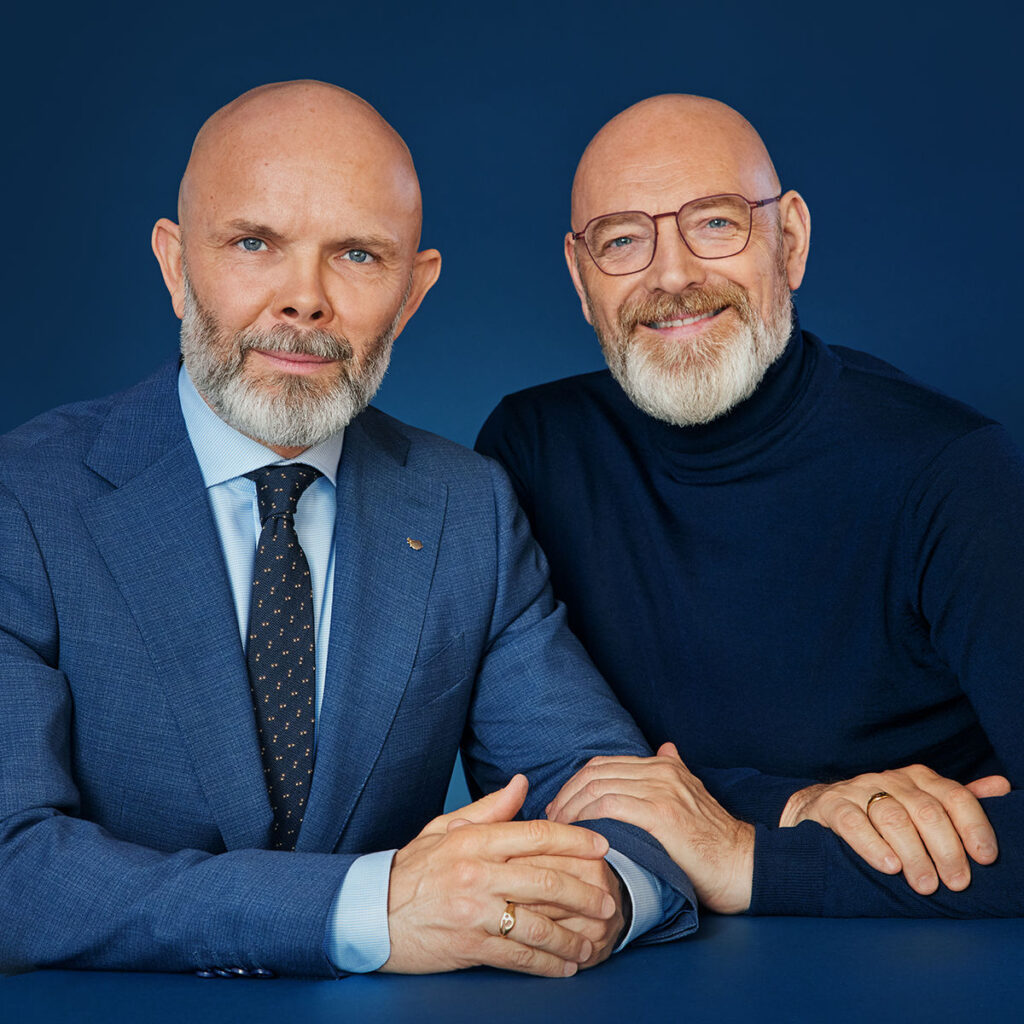
Felix: “We also had lots of discussions with the media. The newspapers in particular were using horrible words to describe queer people. As a group we had meetings with Morganblaðið (one of the biggest Icelandic newspapers), asking for them to stop using words like Kynvillingur (an Icelandic word that roughly translates to “pervert” or “sexual deviant”) to be taken out when they were reporting about us. I remember when we went to meet with the editors, they had never met young queer people. For them it was a genuine shock. They didn’t realise that queer people were just regular members of society.
Suddenly they realised, “Oh so these people are studying medicine, engineering and law and economics. They’re studying to become productive members of society and we’re calling them perverts in our pages.”
At that time it almost felt like there were two parallel realities. There was the straight reality and the queer one was somewhere underneath it. They existed in parallel and never touched each other, so there were many walls that needed to be broken down.”
We had meetings with Morganblaðið (one of the biggest Icelandic newspapers), asking for them to stop using words like Kynvillingur (an Icelandic word that roughly translates to “pervert” or “sexual deviant”) to be taken out when they were reporting about us.
GayIceland: So Baldur, if you are successful in becoming the next President of Iceland, what kind of legacy would you like to leave behind?
Baldur: “That’s a good question. I would like the legacy to be that everyone in Iceland feels respected, feels that their basic rights are respected and protected; and that everyone in this society feels that they belong to it. I would like to leave a legacy where our society focuses on what unites us and not what divides us. At the same time I would like to get across the importance of the President of Iceland being a guardian of the basic rights of all the people who live in Iceland. To keep a watchful eye on the parliament and government with the will of the Icelandic people in mind.”
Icelanders are set to go to the polls on June 1st to elect their next President.
Note: For those who are not familiar with the name Bessastaðir, Bessastaðir is the official residence of the president of Iceland.

